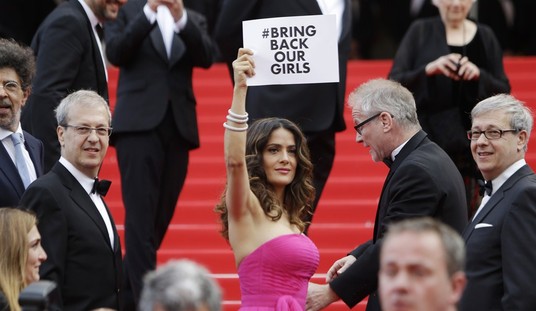In my post yesterday about the Australian Prime Minister Kevin Rudd’s cringe-making “apology” to the Aborigines for the sins of his fathers, I mentioned Keith Windschuttle’s excellent book The Fabrication of Australian History. What I did not know was that volume two of Mr. Windschuttle’s work will be out shortly from Macleay Press. At the center of this volume of his ambitious panopticon of the history of Down Under is the “Stolen Generations” controversy that precipitated, or at least provided the pretext for, Prime Minister Rudd’s exercise in politically correct contrition: the idea that “tens of thousands” (as The New York Times moronically reported a few days ago ) of Aboriginal children were forcibly removed from their families in an effort of social engineering that amounted to “genocide.”
Contrition is politically correct when 1) it is expressed about a matter that has been officially enrolled in the Index of Approved Grievances, so there is no chance of lamenting something not politically advantageous and when 2) it costs the person making the apology nothing. For example, apologizing for the white man’s nastiness to the American Indians is an OK subject for apology, but don’t bother looking for an American Indian apology for the way it treated other Indians, to say nothing of the Europeans, they captured in their endless wars. As for the matter of cost, or lack thereof: that is why legislators are so good at uttering such apologies. The only money they spend is your money: so as far as they are concerned the contrition is free.
The founding document of the myth of the Stolen Generations was a 1997 government report called “Bringing Them Home.” The logic of the report is impeccable: the story it tells is indeed the story of an attempted genocide, i.e., the effort to eradicate a distinctive race and culture. Fortunately, as Mr. Windschuttle shows, the story is not true. “The problem with the Bringing Them Home report,” he wrote a few days ago in The Australian, “is not its logic but its facts.
As regards NSW [New South Wales], the story of the Stolen Generations was largely formed in 1981 by the historian Peter Read, then of the Australian National University (now at the University of Sydney). Read’s work had an enormous influence on Aboriginal communities by saying institutionalised children had not been failed by alcoholic parents who neglected to provide them with food and shelter.
It was all the work of the white man, of faceless white bureaucrats who wanted to eliminate the Aborigines. Bringing Them Home did no original research of its own in NSW. Instead, it relied upon Read’s writings. It quoted verbatim his claim that the files on individual children removed by the Aborigines Protection Board confirmed his case: “Some managers cut a long story short when they came to that part of the committal notice ‘Reason for board taking control of the child’. They simply wrote ‘for being Aboriginal’.”
If it’s pretended this was commonplace, however, it is a serious misrepresentation. In a debate with Read last year at the History Teachers Association’s annual conference, I asked him how many files bore those words. He confessed to the audience there were only two. When I investigated the same batch of 800 files in the NSW archives, I found there was only one. Its words were “Being an Aboriginal”. There were two others with the single word “Aboriginal”.
I also found that, although popular songs and the Bringing Them Home report gave the distinct impression that most children were removed when they were babies or toddlers, there were hardly any in this category. The archive files on which Read relied show that between 1907 and 1932, the NSW authorities removed only seven babies aged less than 12 months, and another 18 aged less than two years. Fewer than one-third of the children removed in this period were aged less than 12 years. Almost all were welfare cases, orphans, neglected children (some severely malnourished), and children who were abandoned, deserted and homeless.
The other two-thirds were teenagers, 13 to 17 years old. The reason they were removed was to send them off to be employed as apprentices. In reality, the NSW Labor governments were not stealing children but offering youths the opportunity to get on-the-job training, just like their white peers in the same age groups.
Rather a different picture, eh?
In any event, Mr. Windschuttle makes an important moral point in his essay. Namely, that the enormity for which Prime Minister Rudd apologized is so serious that an apology that is unaccompanied by compensation is not only meaningless: it is also a further insult–could it possibly be a Hate Crime?–to the people it pretends to seek forgiveness from. There are, Mr. Windschuttle estimates, approximately 500,000 Aborigines in Australia today, living in about 100,000 families. Any meaningful apology, he suggests, should be accompanied by a lump sum payment of $500,000 per family. And where should that $50 million come from? Why, from those whose hearts are lacerated by the wrongs enumerated in the Bringing Them Home report, i.e., politicians like Kevin Rudd and politically correct historians like Peter Read and Robert Manne who specializing in purveying the satisfactions of guilt without the tithe of penance. If they really believe the fabricated “history” put forth by their revisionist narrative, they should be lining up to pay compensation to the people they have nominated for victimhood. The unsurprising fact, of course, is that in front of the sign reading “The queue forms here” you’ll find nary a soul waiting to make his contribution.









Join the conversation as a VIP Member